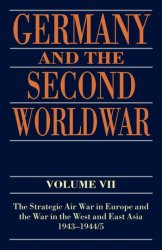The war in Afghanistan was the USSR's "Vietnam.” It de-legitimized the authority of the Communist Party. The mighty Soviet army, the victor against Hitler in World War II, was dealt a humiliating defeat. Soviet society was filled with more than a half million disenchanted Afghan veterans, many wounded, sick, drug addicted, and forming into criminal gangs. The vaunted Soviet army showed itself totally unprepared for guerilla warfare. The Afghan war gave rise to the first serious dissident movement within Russia. In the longer run, the Soviet battle against Islamic forces promoted Islamic fundamentalism in Central Asia and in Chechnya.
Countries go to war in different ways. Although the U. S. entry into Vietnam was without a congressional declaration of war, there was widespread debate within government circles, the press, and within society before, during, and after the war. The first and second Gulf wars against Saddam Hussein were also the subject of public debate and discourse both in Congress and in the United Nations. There was dissent and disagreement (war opponents would argue there was too little debate), but there was a public forum for public debate.
A remarkable feature of the Soviet invasion of Afghanistan is that it was made by so few people with so little input from government, press, or society. Official Soviet policy, which was devised by a few Politburo members, was initially against any invasion at that time or in the future. The negative consequences were clearly understood and spelled out. Yet within the course of a few months, the same individuals changed their minds, largely due to the influence of a few Politburo members (the foreign minister, the KGB head, and the defense minister) and based on the notion of an imminent offensive challenge from the United States that did not exist.
The American decision to invade Iraq was based in part on intelligence that Saddam Hussein had massive stockpiles of weapons of mass destruction. The Soviet decision to invade Afghanistan was based on the KGB's faulty intelligence that the United States had a master plan to use Afghanistan to threaten Soviet republics in Central Asia. Similarly, the U. S. intelligence community viewed the Soviet Afghan invasion as a master plan to fulfill "the age-long dream of Moscow to have direct access to the Indian Ocean” and to drive "right down on the edge of the Arabian and Oman Gulfs.”7 Both thought they were playing defense to the other's offense.
The American Vietnam experience has shown that those who order ill-fated wars pay the political consequences, such as Lyndon Johnson or Richard Nixon in Vietnam. Soviet experience shows that there were no consequences of bad decision making. Yury Andropov, the head of the KGB, was more responsible than any other Soviet official for the Afghanistan invasion, which was clearly evident as a disastrous miscalculation by 1982. Yet, upon the death of Leonid Brezhnev on November 12, 1982, he was elected to the highest position—party general secretary—on the same day.
The Politburo of Leonid Brezhnev made another fundamental mistake. Although its reports mention Islamic fundamentalism, it continued to regard the United States, China, and the government of Pakistan as those controlling the levers of the conflict. Viewing the world through the prism of Marxist thought, there was no room in their vision for a Taliban, a Mullah Omar, or an Osama bin Laden. The absence of this insight came back to haunt post-Brezhnev and post-Gorbachev Russia in Chechnya and in the growing restiveness of the Muslim populations of Central Asia. A similar U. S. miscalculation ended on September 11, 2001.




 World History
World History









